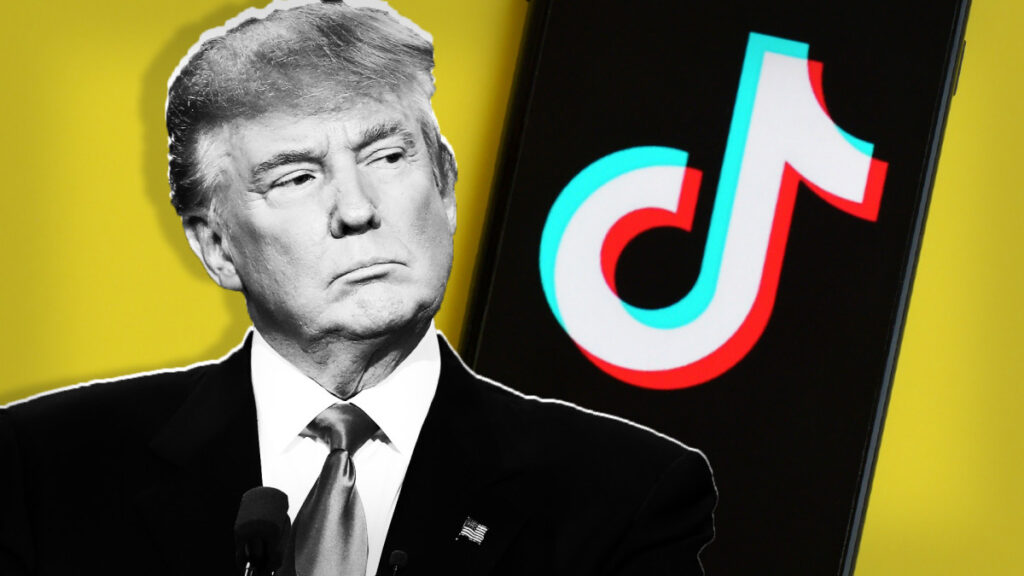The drama surrounding TikTok and whether it will continue to be available in the U.S. is unprecedented in the tech world.
At issue is how a foreign-owned consumer app is being effectively forced by U.S. law to restructure ownership and hand operational control to an American company while retaining access to its massive user base.
Unlike typical data privacy or antitrust cases, this deal requires retraining TikTok’s algorithm with U.S. data and ongoing oversight, giving a private company and the U.S. government unprecedented influence over content recommendations.
Combined with the app’s cultural reach — over 170 million U.S. users and billions in ad revenue — the deal uniquely intersects national security, geopolitics, and consumer technology, setting a potential blueprint for how the U.S. may handle other foreign apps in the future.
We may finally have an answer as to what’s next for TikTok, the social media behemoth.
It appears that Oracle (ORCL) has landed one of the most high-profile contracts in the world. The California-based tech giant will secure and host TikTok’s U.S. operations under a deal backed by the Trump administration. The arrangement could reposition Oracle as a trusted U.S. government security partner if it is successful.
If Oracle stumbles, the company risks being blamed for breaking an app used daily by all those TikTok-obsessed Americans.
Getty/TS
A deal built on security
The agreement, as reported by Bloomberg and Politico, is designed to comply with the Protecting Americans from Foreign Adversary Controlled Applications Act (PAFACA). The PAFACA law requires TikTok’s Chinese parent, ByteDance, to divest control or exit the U.S. market.
Under the plan, American investors would hold roughly 80% of a newly created U.S. entity, with ByteDance retaining less than 20% and a single board seat. That seat will be excluded from the security committee overseeing operations.
U.S.-based Oracle’s role is central.
Related: Cathie Wood buys $28.6 million of surging tech stocks
Oracle will host U.S. user data, manage security, and oversee TikTok’s recommendation algorithm. The algorithm will be licensed from China’s ByteDance, but it will be retrained entirely on American data. The result will be a sort of firewall between the U.S. operation and its Chinese parent.
Critics of the deal worry it could consolidate too much power in the hands of a few billionaires, and others are concerned that the deal is “Giving the government more power to surveil its own people or to do large data collections is not a good thing,” says David Kennedy, a cybersecurity expert and the founder of TrustedSec and Binary Defense, told Time. “We’re just basically switching one government for another.”
Oracle Earnings
In its most recent earnings report, September 9, 2025, Oracle announced:
- Q1 FY 2026 total revenue: $14.9 billion, up ~12% YoY.
- Cloud business (IaaS + SaaS): $7.2 billion, up ~28% YoY; infrastructure alone $3.3 billion, up ~55%.
- Remaining Performance Obligations (future contracted revenue backlog): $455 billion, up 359% YoY.
TikTok financial scale
- U.S. net ad revenue 2024: $11.01 billion, according to Demand Sage.
- Forecast U.S. ad spend 2025: $11.8 billion, up ~21% YoY, according to Basis.
- Global revenue 2024: ~$23 billion, ~77% from advertising, according to Business of Apps.
Key timeline for the TikTok-Oracle deal
- April 2024: PAFACA passed; TikTok must divest or exit the U.S.
- January 19, 2025: Divestiture deadline; ByteDance challenged the law.
- Early 2025: Supreme Court upholds PAFACA in TikTok, Inc. v. Garland.
- September 19, 2025: Trump and Chinese officials signal support for a negotiated solution.
- September 20, 2025: Politico reports White House confirms U.S. control over TikTok’s algorithm.
- September 22, 2025: Details emerge of Oracle-backed retraining plan and board structure.
- Fall 2025 (expected): Executive order to finalize the deal, giving a 120-day transition period.
Oracle’s moment in the spotlight
For Oracle, this is a make-or-break opportunity. While it has lagged behind AWS and Azure in cloud computing, TikTok’s U.S. operations would place Oracle at the center of one of the world’s most visible tech and security assignments.
If it is executed smoothly, the deal would bolster Oracle’s credibility as a security-first cloud provider. Glitches, however, could harm its reputation in the enterprise and government sectors.
Related: OpenAI faces another scathing lawsuit from a powerful rival
Oracle also faces technical and political challenges. Retraining TikTok’s algorithm from scratch risks altering content discovery, engagement, and ad performance. At the same time, lawmakers will closely watch to ensure ByteDance’s influence is sufficiently curtailed.
Oracle’s role in TikTok is both a contract and a test of the company’s ability to execute at scale under global scrutiny. Success could redefine Oracle’s position in cloud and cybersecurity markets; failure could damage its reputation while threatening TikTok’s U.S. presence.
Larry Ellison shared a take on our collective surveillance era at an Oracle meeting in 2024 that should raise some eyebrows in the context of this deal, according to reporting on AOL.
We live in a world in which ‘we are constantly recording,’ causing police and citizens to ‘be on their best behavior’ ~ Oracle founder Larry Ellison.
Related: Jaguar cyberattack recovery complicated by a major oversight



